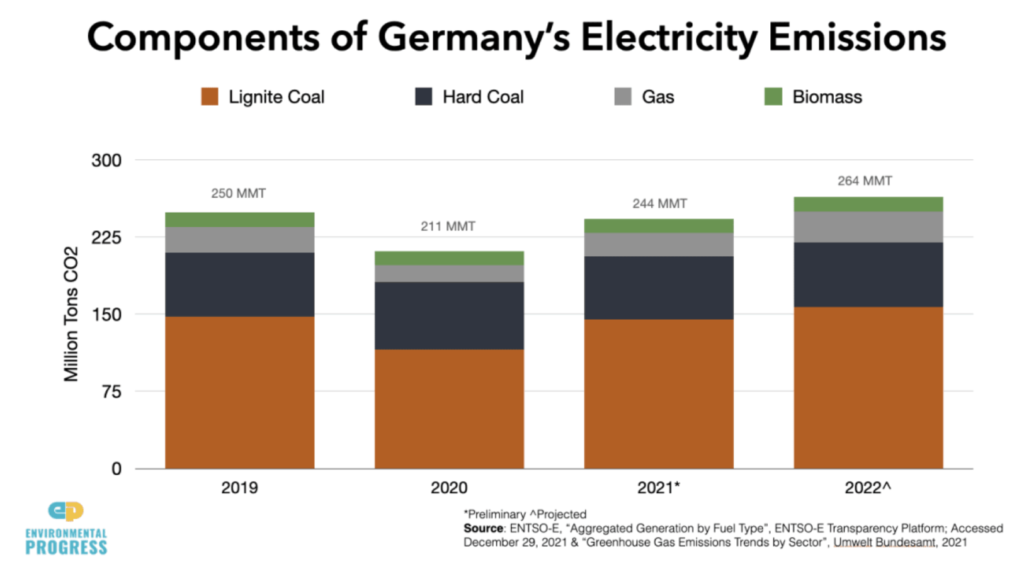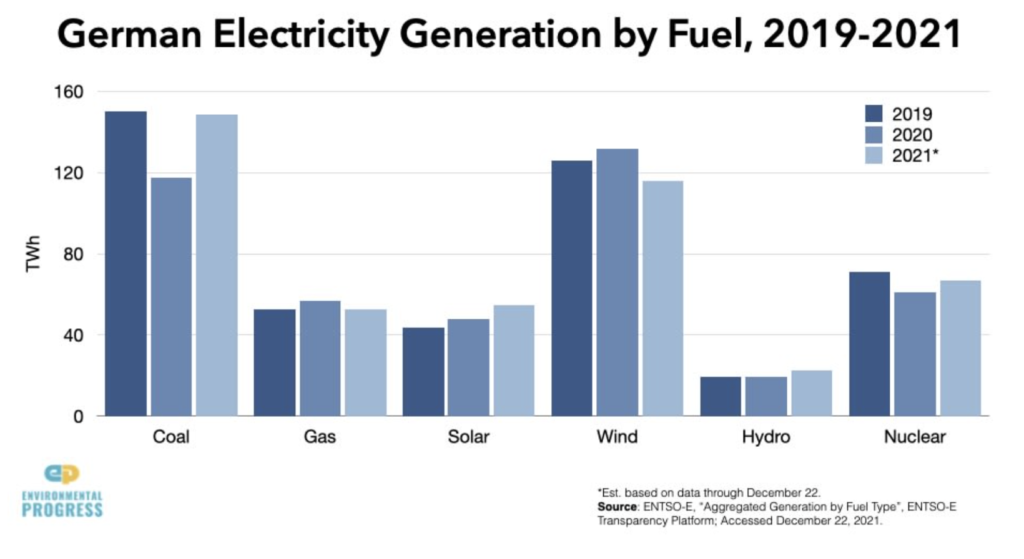Michael Shellenberger: Finally, Bloomberg admits renewables mania caused energy shortages
The following article was written by Michael Shellenberger at Substack:
Between 2017 and 2021, Environmental Progress and I researched and published dozens of articles, testified before Congress, and authored a book, Apocalypse Never, arguing that weather-dependent renewables were making electricity increasingly unreliable and expensive, and making the United States, Europe, and Asia, dangerously dependent on natural gas. In response, there was an organized and somewhat successful effort by progressive climate-renewables activists to cut off our funding, censor us on Facebook, and prevent me from testifying before Congress.
But now, one of the biggest boosters of natural gas and renewables, media giant Bloomberg, whose owner, Michael Bloomberg, is directly invested in natural gas and renewables, has published an article conceding and substantiating almost every single point we have made over the years. “Europe Sleepwalked Into an Energy Crisis That Could Last Years,” screams the headline. The article concludes that the crisis was “years in the making” because Europe is “shutting down coal-fired electricity plants and increasing its reliance on renewables.”
Bloomberg still pulls its punches and misdescribes the situation in some ways. The article, like many other Bloomberg articles, mislabels the deployment of renewables as an “energy transition” similar to past transitions from wood to coal and coal to natural gas, failing to acknowledge that the poor physics of energy-dilute renewables make that impossible. And it suggests that Europe’s energy crisis is the result of ignorance. “The energy crisis hit the bloc,” notes a renewable energy PR person, “when security of supply was not on the menu of EU policymakers,” ignoring the reality that I and others warned EU policymakers of this very crisis.
But, to its credit, the article acknowledges that the energy crisis is a direct result of Europe over-investing in unreliable renewables and under-investing in reliable energy sources. “Wind and solar are cleaner but sometimes fickle,” the authors admit, in the understatement of the year, “as illustrated by the sudden drop in turbine-generated power the continent recorded last year.” (I was the first U.S. journalist to report Germany saw its emissions rise 25% in the first half of 2021 due to lack of wind.)
Now, a new analysis from Environmental Progress finds Germany increased its emissions last year and will likely increase them again this year. This year, German electricity generation coming from fossil fuels will be 44% compared to 39% in 2021 and 37 percent in 2020, assuming weather conditions and electricity demand are similar to 2021. Emissions from Germany’s power sector will rise from 244 million tons in 2021 to 264 million tons in 2022.

And Bloomberg notes that Europe is in a full-blown energy crisis. “The retired salt caverns, aquifers, and fuel depots that hold Europe’s stockpiles of natural gas have never been so empty at this point in winter,” it notes, and “the continent is grappling with a supply crunch that’s caused benchmark gas prices to more than quadruple from last year’s levels, squeezing businesses and households. The crisis has left the European Union at the mercy of the weather and Russian President Vladimir Putin’s wiles, both notoriously difficult to predict.”
It’s true that American natural gas from fracking, a practice I have defended since 2013, is being shipped to Europe, and will ease Europe’s pain. And it hasn’t helped that France’s leaders have grossly mismanaged their nuclear power plants, resulting in an embarrassing 30% decline in their output during the crisis.
But, notes Bloomberg, the relief provided by American liquified natural gas (LNG) is “temporary at best…. Storage sites [for natural gas] are only 56% full, more than 15 percentage points below the 10-year average… Barring an increase in Russian exports, something that doesn’t appear to be in the cards, levels will be at less than 15% by the end of March, the lowest on record… With the two coldest months of winter still ahead, the fear is that Europe may run out of gas.”
And the lack of nuclear energy underscores the need for more nuclear plants since they are reliable and operate independently of the weather when they are managed well. No matter how well a solar farm is managed, it can’t change the weather.

And now, Russia is massing troops on its border with Ukraine, and may invade. This is a problem since one-third of Russian gas going into Europe goes through Ukraine. If war breaks out, Europe could suffer serious gas shortages. Overdependence on natural gas and renewables, and underinvestment in nuclear, has thus undermined the energy security, and thus national security, of Europe, since heads of state dependent on Russian gas will be less likely to speak out against an invasion.
Even longtime natural gas and renewable energy boosters agree there’s a crisis. “The ability of Europe and the U.S. to respond to a Russian invasion is constrained both by a desire not to exacerbate Europe’s energy crisis by sanctioning Russian energy exports and, more broadly, by the threat that Russia could retaliate to any confrontation by restricting gas flows into Europe, as Russia did in 2006 and 2009,” Jason Bordoff, a former Obama administration official, told Bloomberg.
Covid accelerated many trends and one of them is the recognition that unreliable and weather-dependent renewables cannot power modern economies. Senator Joe Manchin specifically mentioned the role that renewables are playing in making America’s electricity less reliable when he killed Build Back Better legislation in December. The Netherlands mentioned the need for reliable electricity when it announced plans to expand nuclear energy.
Now, with New England at grave risk of energy shortages for the exact same reasons as Europe, it’s time for the American people and their representatives to fully wake up to the reality that modern societies cannot rely on unreliable renewables. It would also help if the renewable energy industry, and its dogmatic supporters, including Facebook’s Mark Zuckerberg, Rep. Sean Casten, and Rep. Jared Huffman, would stop trying to censor and otherwise shut down the people who raised the alarm about the coming crisis in the first place.